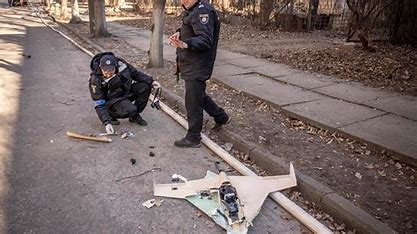In a significant escalation of regional tensions, Iran’s United Nations mission has claimed that Lebanon’s Hezbollah group, backed by Tehran, was responsible for a drone attack on Israeli Prime Minister Benjamin Netanyahu’s residence. The strike, which occurred earlier on Saturday, targeted Netanyahu’s family home, although no casualties were reported.
Iran Confirms Hezbollah’s Role
According to Iran’s state news agency, IRNA, Tehran’s UN mission responded to inquiries about Iran’s involvement in the attack. “This action was taken by the Lebanese Hezbollah,” the mission stated, placing responsibility squarely on the militant group that has long been supported by Iran.
Netanyahu’s Response
Prime Minister Netanyahu wasted no time in condemning the attack, accusing Hezbollah of an assassination attempt on him and his wife. “The attempt by Iran’s proxy Hezbollah to assassinate me and my wife today was a grave mistake,” he said in a public statement. Netanyahu warned that any threats against Israeli citizens would be met with severe retaliation. “Anyone who tries to harm Israel’s citizens will pay a heavy price,” he added.
Hezbollah’s Silence
Despite the accusations, Hezbollah has not yet made any public statement acknowledging or denying involvement in the drone strike. The militant group, which regularly clashes with Israeli forces in southern Lebanon, has remained silent on the matter. However, the group is widely considered part of Iran’s “axis of resistance,” which includes various militant factions aligned with Tehran.
Iran Denies Direct Involvement
Iran’s foreign ministry, through spokesman Esmaeil Baghaei, refuted Israel’s accusations of Tehran’s direct involvement. He slammed Israel for spreading what he called “lies,” labeling it part of the regime’s ongoing practice of misinformation. Iran, however, has been accused of fueling the ongoing conflict in Gaza by backing Hamas and Hezbollah.
Tensions Amid Israel-Hamas War
The drone strike comes at a time of heightened tensions as the Israel-Hamas war continues to rage in Gaza. Tehran has openly supported Hamas and Hezbollah in their fight against Israel, and both Iran and its proxies have been drawn deeper into the conflict since Hamas’s deadly attack on Israel on October 7, 2023.
Iran, having already launched missile attacks on Israel during the war, has warned it will retaliate if Israel continues its strikes on its allies. As the region teeters on the brink of a wider conflict, the international community watches closely.
Retaliation Looms
With Netanyahu’s vow of retaliation and Iran’s firm stance against Israel, the situation remains volatile. Both countries have issued threats, and the possibility of further military action looms large.
As the war between Israel and Hamas escalates, regional players such as Hezbollah and Iran are becoming increasingly involved, adding fuel to an already dangerous situation in the Middle East.







